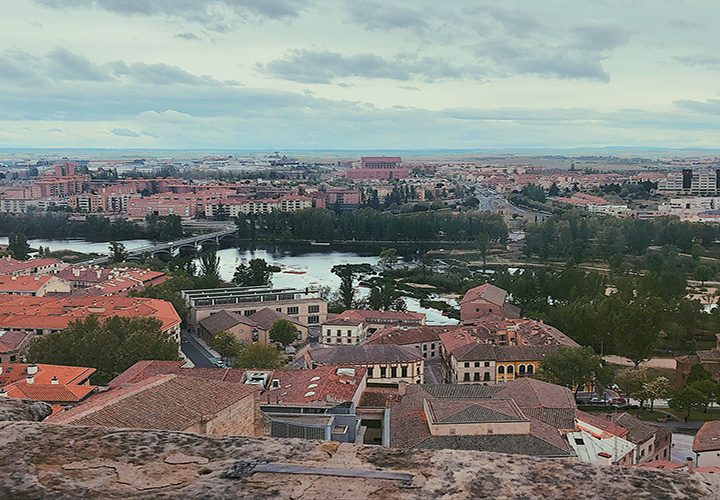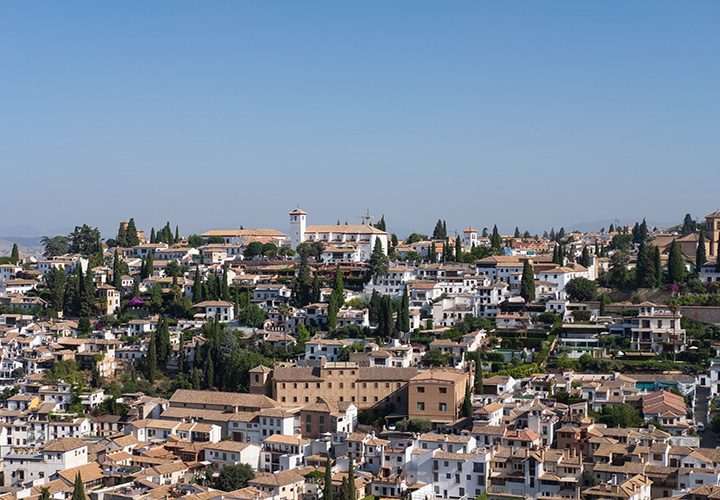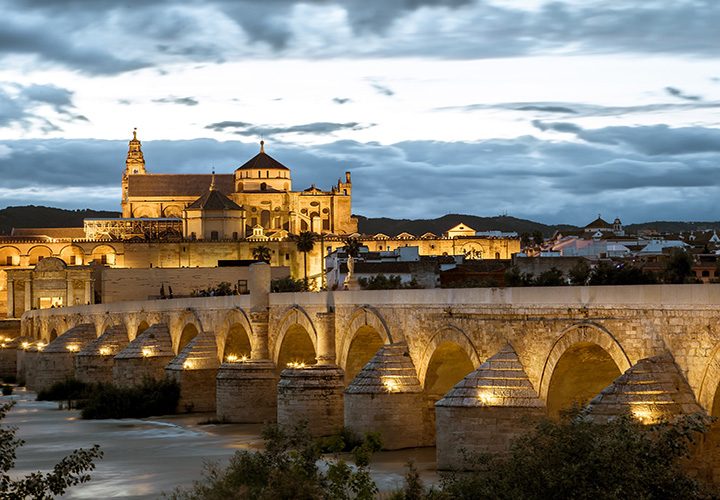Huelva
Edificio Eurocom

Details
Before visiting any town or city make sure you know the basics. General details and important information.
- Emergency Services: 112
- Language: Spanish
- Currency: Euro
- Country Code: ES
- Travel Visa: None required
- Population: 524,576
Risk Level
Researching various official sources, we perceive the risk to holiday makers and travellers are as follows;
Travellers Tips
Top travel advice and interesting tip bits of information from experienced travellers.
Emergencies
For the Emergency services just dial 112 from any phone.
Hospitals in Huelva
Travelling Around
Huelva operates bus routes, with 9 lines running throughout the city. Routes and timetables can be found in the city centre at the main bus station or at individual bus stops. Walking and taxi services are also a great alternative.
Airports
Train Stations
Huelva Safety
What are some safety tips I should know?
Pickpockets do operate in Huelva. They are found predominantly in crowded tourist areas such as train/bus stations and markets. In these areas, men should keep wallets in front instead of rear pockets, and women should keep bags and purses close to their sides.
Avoid traveling alone at night. This is a general recommendation for any unfamiliar area, but should be followed in Huelva as well. If staying with a group is not an option, make sure to remain in lighted areas and take safe modes of transportation such as cars or taxis.
Don’t carry around large amounts of money, and avoid wearing expensive jewellery or looking flashy. Although street crime is not a major concern in Huelva, drawing un-needed attention is never a good idea.
What are the common crimes?
Huelva is a safe destination with a very low crime rate. Take the usual precautions such as not leaving things valuables in your car, keeping an eye on belongings.
Pickpockets do operate in Huelva. They are found predominantly in crowded tourist areas such as train/bus stations and markets. Keep an eye on all belongings such as wallets and purses.
Are there any areas to avoid?
But keep in mind that the seafront restaurants are usually more expensive and of a lesser quality than the small stalls in the heights of the city. Don’t hesitate to give one of them a try while strolling through the less crowded laneways.
How do I keep up with the local news?
Improve Your Personal Safety
Knowledge – the more you have the better equipped you are.
Awareness – the more you see the safer you become.
Response – the right reaction can change a situation.
Local Traditions
Every culture has its customs and traditions, they have been handed down the generations and are always held in high regards by the local residents.
Annual Ceremonies
Tapas
In Huelva, as everywhere else in Spain, tapas represents the great gastronomic tradition. At the bar, on the terrace of a cafe, at the table of a restaurant, you will taste small portions of the most diverse dishes (meat, cheese, prawns, olives), served with a glass of Malaga, Jiora, Sangria or a nice cold cerveza (beer). Gastronomy also takes significant importance at every festival in the province, where you can be sure to try out many of the local delicacies!
San Sebastian Tamborrada
Taking place on the 20th of January, it is a major festivity when both young people and adults go out to the streets in order to celebrate. Sarriegui wrote the well-known San Sebastian March, the main song in the whole tamborrada and which inaugurates the party in the midnight hour at Constitution Square every 20th of January. It coincides with the raising of the city flag. From that moment, a celebration that will last for 24 hours starts. Every 20th of January at midday, a children’s tamborrada departs from San Sebastian city hall. It is made up by the tamborrada groups of all schools in the city and students themselves are the ones who play the drums.
El Rocío Pilgrimage
One of the biggest in the world and one with the largest crowds, has its origins in the year 1653, when the Virgin of Las Rocinas was appointed Patron Saint of Almonte and it was decided to set aside a feast day for her, which would be on 8th September. Every seventh August, a statue of the Virgin of el Rocio travels at night from El Rocio to Almonte.
Annual Events
Annual events allow a city come together for some amazing experiences. If visiting at this time, make sure you have your accommodation booked and are always aware of your surroundings when travelling around.
Huelva Events
Huelva Latin America Film Festival
Taking place in November, this week long festival attracts thousands of people to the city. From film screenings held in various venues, awards are given out the winners. A great way to experience Spanish film. It is worth noting that this festival is entirely in Spanish.
Huelva Pride
Celebrating the LGBTQ+ Community, this event is in honour of life and vibrant culture. It is a great way to mix in with the locals to experience acceptance and love.
Huelva Highlights
What else is worth visiting?
Christopher Columbus Monument
Statue of the discoverer of the New World which was offered by the United States in 1929 – and the beautiful arenas, where you can cheekily watch a show ‘for free’ from the top of one of the abandoned hills that overlooks them. The impressive statue of the navigator stands at the confluence of the Tinto and Odiel rivers, at the foot of the towers of the port’s petrochemical plant. It is nevertheless the town’s emblem and its most photographed site.Niebla Castle
A large building situated within Niebla’s walled enclosure, and was designed to project the image of the noble who once lived there. The Guzmanes Fortress is to be found on one side of these walls. It was built in the middle Ages. It has a rectangular floor plan, with eight towers of differing shapes and two main enclosures.Coto Doñana National Park
The Parque Nacional de Doñana is one of Europe’s most important wetland reserves and a major site for migrating birds. It is an immense area; the parque itself and surrounding parque natural or Entorno de Doñana (a protected buffer zone) amount to over 1,300 sq km in the provinces of Huelva, Sevilla and Cádiz. It is internationally for recognised for its great ecological wealth.
What are the main attractions?
La Merced Cathedral
This monument was originally built in 1548, but Later, in 1749, Juan de Dios began work on building today’s church. The project was finished in 1767. The church is located just north of Plaza Mayor. It is well worth a look are the ruins of the monastery, which are located on the side of the church and feature a gorgeous pond and courtyard, head to the top of the convent for views of the area.Museum of Huelva
Just a small town museum, it houses some interesting archaeological finds from Roman times, a Roman water wheel from the famous Rio Tinto mines, and several contemporary art exhibits featuring Spanish artists from the Huelva area and beyond.Huelva’s provincial museum, housed in a modern building on the Avenida Sundheim, has an interesting archaeological collection.Iglesia de San Pedro
Huelva’s oldest parish church, the Iglesia de San Pedro, was constructed in the 15th and 16th centuries on a hilltop site of a mosque and next to the remains of a medieval fortress. On the northern side of the church is the Cabezo de San Pedro, a wooded hill with good views over the city. In 1999 the church was designated a Site of Cultural Interest.Are there any festivals?
Festivities of the Virgen de la Cinta.
Festival about a Gothic built in the early fifteenth century, dedicated to Ntra.Sra. Ribbon, on the road linking the Conquero the Plaza de la Merced, every September, the town celebrates its patron festivities with the “Fiestas de la Cinta”.During the nine days leading up to September 8, the feast of the Virgin, Traditional Novena in Merced, where devotees flock children in the city is celebrated. On day 8 after the religious function, we proceed to the solemn procession of the Virgin through the main streets of the city, Huelva offer flowers at the front door of the Merced and at completion, the Virgin, is led back to the Sanctuary Tape.Festival de Cine Iberoamericano de Huelva
A film festival, celebrated since 1974 in Huelva, Spain) dedicated to promoting Latin American cinema in Europe. The festival is chiefly publicly funded.





